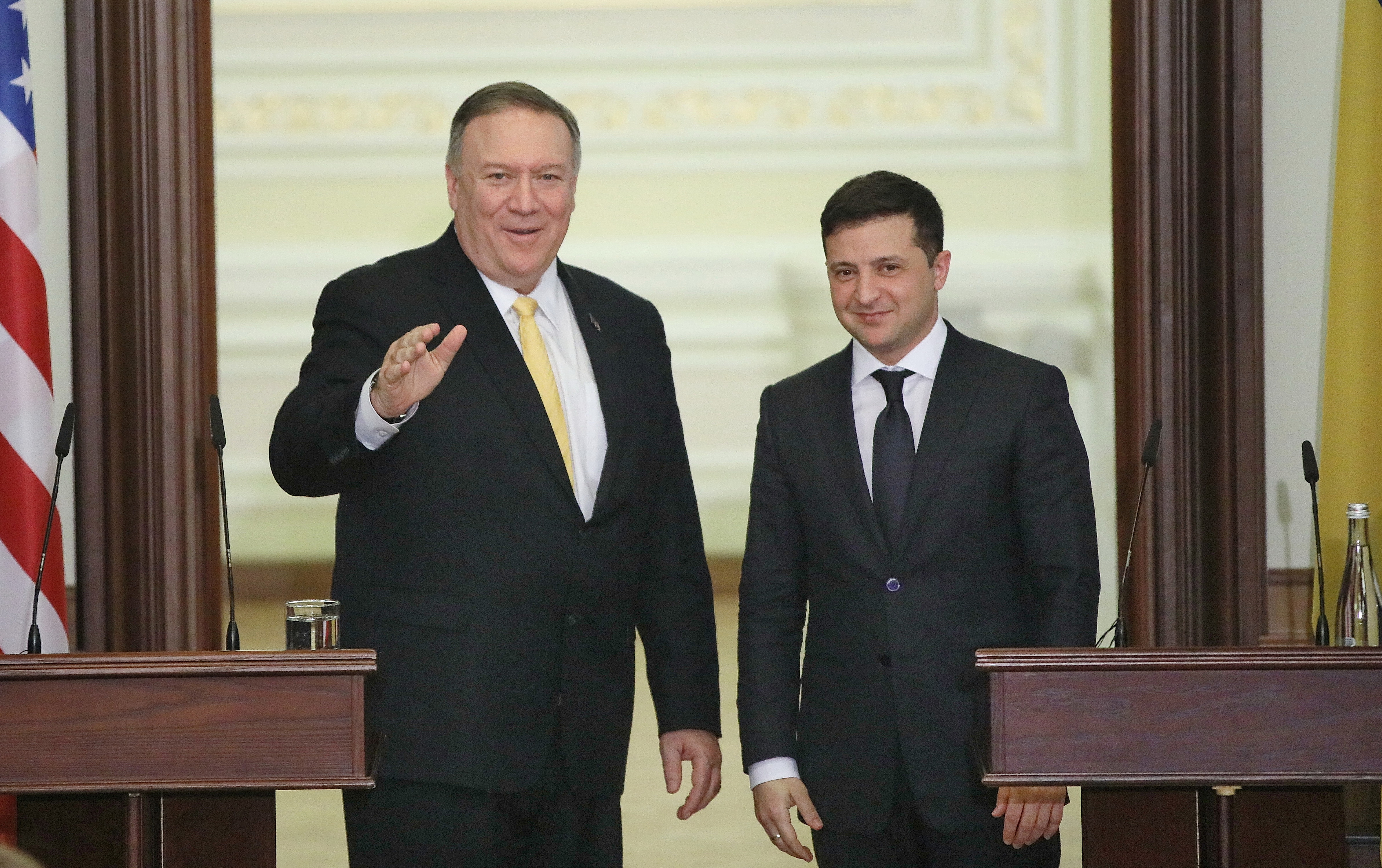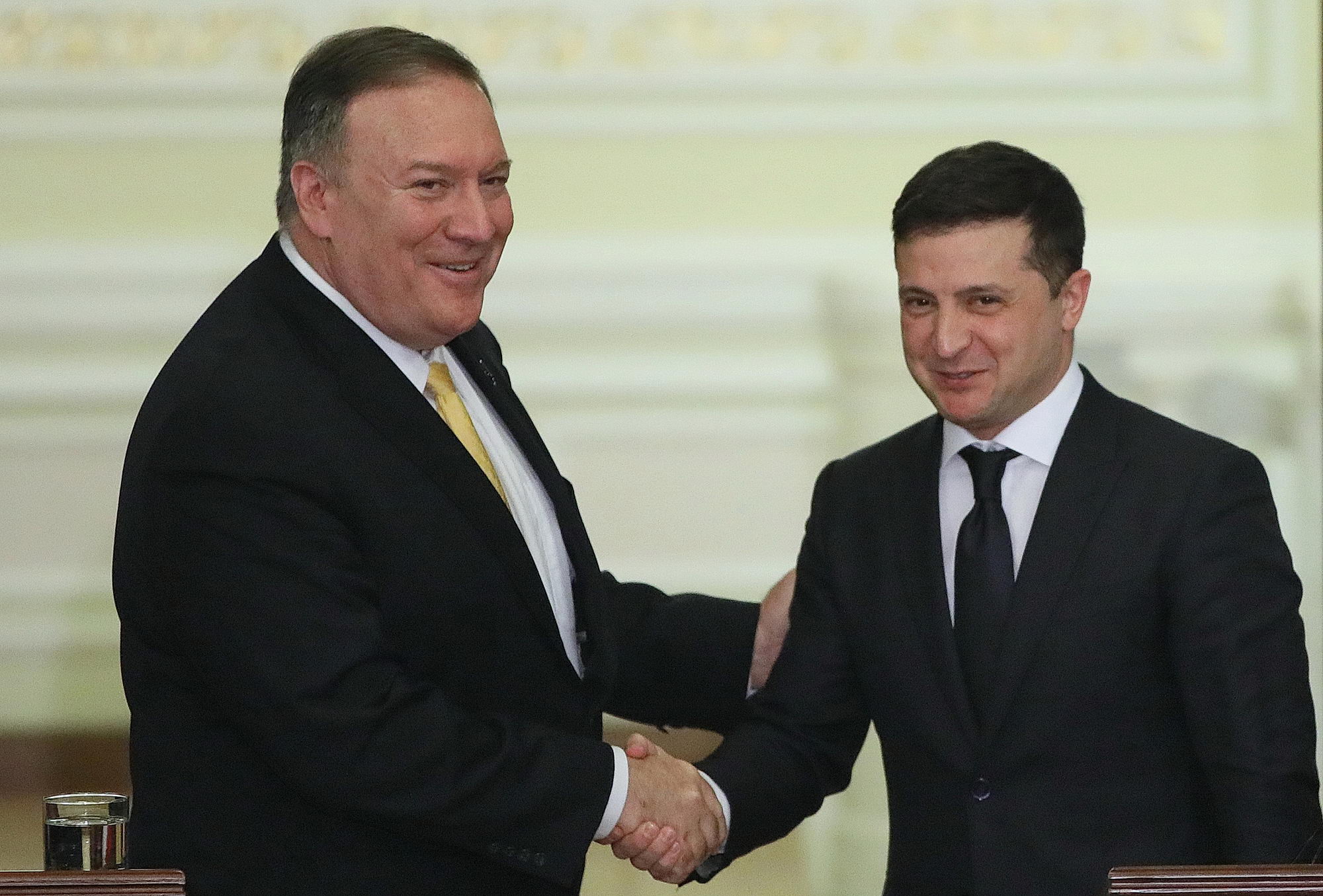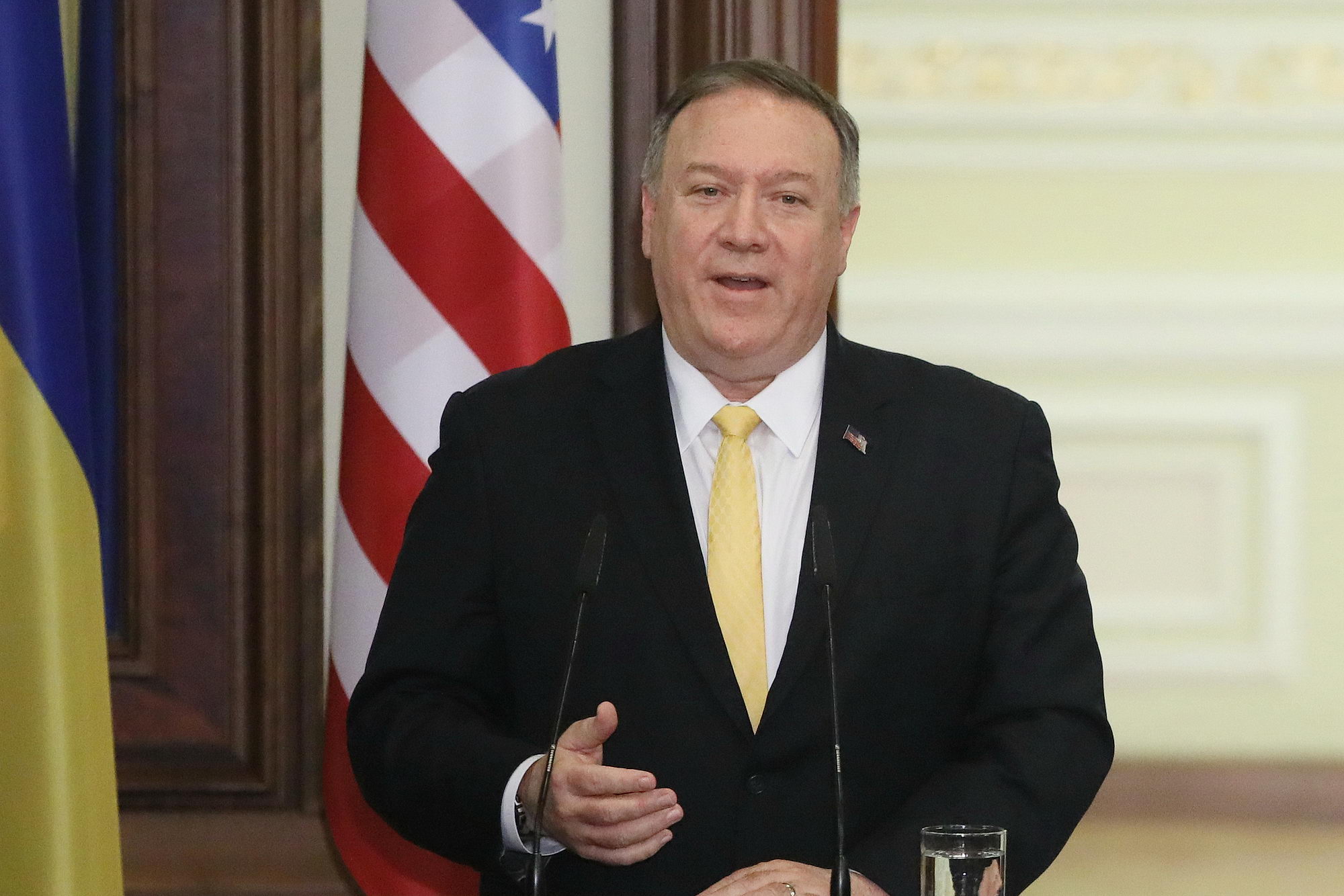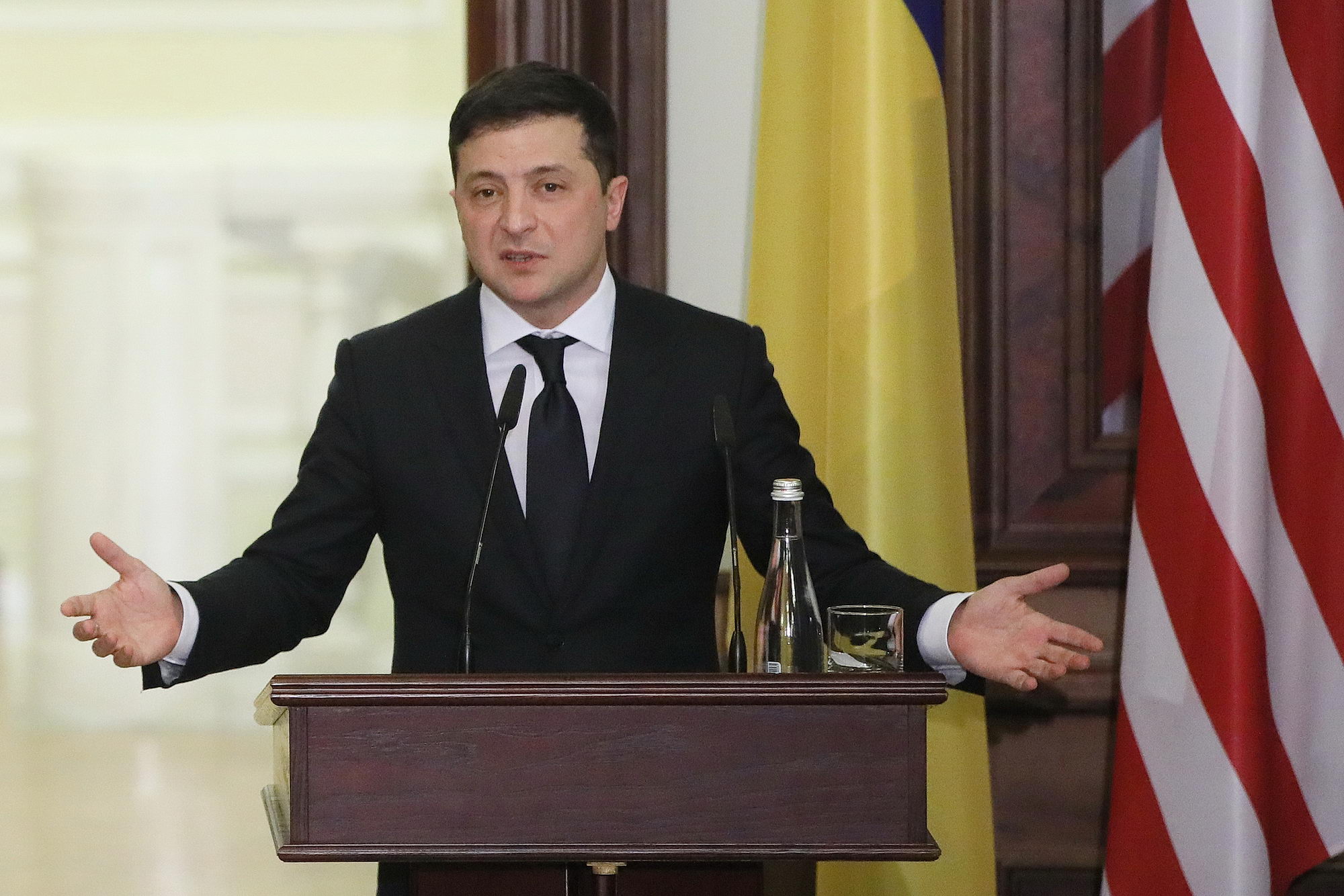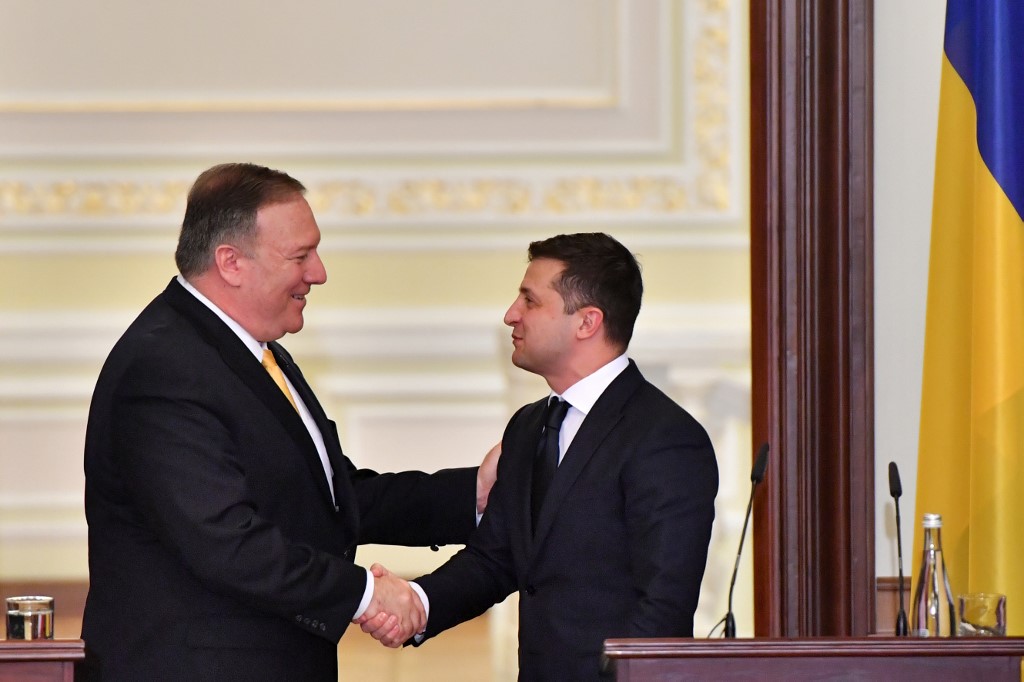U.S. Secretary of State Mike Pompeo and Ukrainian President Volodymyr Zelensky exchanged predictable reassurances of friendship at a press briefing in Kyiv on Jan. 31 against the backdrop of the ongoing impeachment trial of U.S President Donald J. Trump.
Trump has been accused of abuse of power and obstruction of congress surrounding his alleged efforts to pressure Zelensky to announce investigations into his political rival, Democratic candidate Joseph Biden and Ukraine’s alleged collusion with his 2016 opponent Hillary Clinton.
At the briefing, Pompeo called Ukraine “a bulwark between freedom and authoritarianism.” He reiterated the U.S. commitment to support Ukraine on its democratic path towards membership in the North Atlantic Treaty Organization (NATO) and the EU as well as in its war against Russia.
The show of support is a stark difference from last week, when Pompeo asked NPR reporter Mary Louise Kelly, “Do you think Americans care about Ukraine?” and even challenged her to identify Ukraine on an unmarked map. The scandal broke days before he set foot on Ukrainian soil.
Pompeo’s animosity very much reflects his boss’ dislike of Ukraine. Trump had strong negative feelings against Ukrainians, whom he termed corrupt and terrible people. His aversion originated from a conspiracy theory that Ukraine, not Russia, interfered in the 2016 U.S. presidential election and that the Ukrainian leadership favored his Democratic rival Clinton.
At Trump’s behest, his personal attorney Rudy Giuliani aided by some State Department officials and former Ukrainian prosecutors ran a covert campaign in Ukraine to dig up dirt on Biden and his son, Hunter, who worked for a Ukrainian energy company Burisma, as well as on former U.S. ambassador Marie Yovanovitch.
At the Jan. 31 briefing, Zelensky nevertheless thanked Trump for his “unwavering support.”
“Relations between Kyiv and Washington are strong and rest upon full trust, mutual understanding and common long-term strategic interest. Ukraine has bipartisan support at the congress,” Zelensky said in his speech.
He said that U.S. aid amounts to nearly $700 million in 2020 and thanked the U.S. for the previous $365 million military aid package.
The strategic goal for 2020 is boosting trade and investment, Zelensky said, adding that his country hopes the Trump administration will lift tariffs on steel imports.
Asked whether the impeachment trial has harmed U.S. – Ukraine relations, Zelensky joked “I was thinking: When will this question be?”
“The impeachment issue has not affected the warm and important relations between the two countries,” he replied.
Asked whether Zelensky’s visit to the White House and military aid was or is conditioned on Ukraine’s announcement of an investigation into Biden, Pompeo replied “No, there was no condition” and that, “they will find the right time and opportunity” for Zelensky’s visit to Washington.
Asked whether Zelensky still wanted to be invited to the White House, the Ukrainian leader said, “It would be the right thing for both countries.”
Pompeo’s planned visit to Kyiv on Jan. 3 was canceled due to the U.S. killing of the senior Iranian military commander Qassem Soilemani in Baghdad that day.
As the tensions between Iran and the Trump administration ratcheted up, Iranian forces mistakenly shot down a Ukrainian passenger plane taking off from Tehran airport on Jan. 8, killing 176 people on board.
